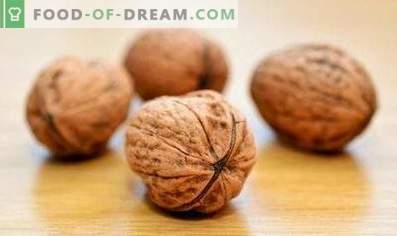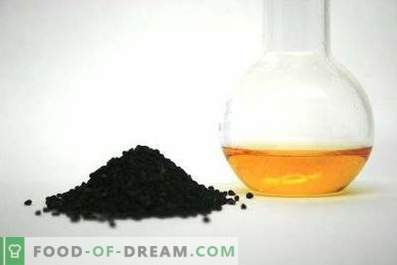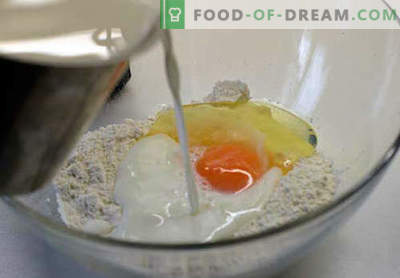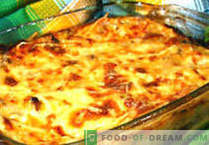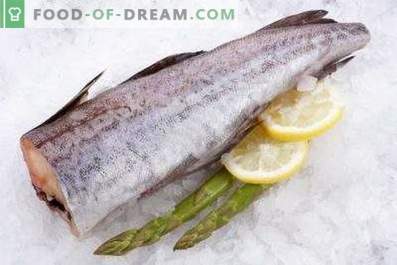
The pollock is a cold-loving sea fish belonging to the cod family. Representatives of this species live in the northern part of the Pacific Ocean - in the Bering Sea, the Barents Sea, the Sea of Okhotsk, the Sea of Japan, and also in the bays of Monterey and Alaska. At the present time, pollock is the leader in terms of production among the bream-like fish. In many countries it is considered a valuable target.
Pollock has an elongated silvery body with an elongated narrow tail, covered with small scales. The upper part of the body is dotted with small spots, the color of which can vary from light brown to black. On the back of the fish are 3 dark gray fins. The one that is closer to the head is the highest, and the one that is localized in the tail section is the longest. In addition to the dorsal, pollock has 2 pectoral and 2 ventral fins of white or pale gray color.
The fish has a disproportionately large head, covered with a variety of dark brown or black spots. The large round eyes of the pollock are framed by a pale yellow iris. A distinctive feature of the representatives of this species is a short barb, located under the lower jaw.
Pollock is considered a long-liver in the circle of cod fishes. The maximum duration of his life is 15 years. During this time, the fish can grow up to 910 mm in length and gain weight up to 5 kg.
In cooking and dietetics, pollock meat is valued for its excellent taste, high protein concentration, low bone and fat content. Fillet and pieces of fish are baked in ovens, fried, steamed, dried and cooked. In addition, pollock meat is used for cooking soup and toppings for baking.
Nutritional Value
A 100 g serving of raw pollock contains:
- 15, 817 g of proteins;
- 0, 873 g of fat;
- 81, 887 g of water;
- 1, 244 g of ash;
- 0, 194 g of omega-3;
- 50, 002 mg of cholesterol;
- 0, 036 g of omega-6.
In addition, fish fillets are rich in essential and non-essential amino acids.
Vitamins in pollock
The following vitamins are present in 100 g of edible part of the product:
- retinol equivalent (A) - 9, 908 mcg;
- thiamine (B1) - 0, 109 mg;
- tocopherol equivalent (E) - 0, 277 mg;
- folates (B9) - 4, 864 mcg;
- Riboflavin (B2) - 0, 106 mg;
- ascorbic acid (C) - 0, 463 mg;
- Niacin equivalent (PP) - 4, 589 mg;
- pyridoxine, (B6) - 0, 092 mg.
Useful items
Trace elements in a 100-gram portion of pollock:
- molybdenum - 3, 992 μg;
- iron - 0, 784 mg;
- chromium - 54, 319 mkg;
- manganese - 0, 107 mg;
- nickel - 6, 797 mkg;
- iodine - 148, 706 mkg;
- copper - 128, 638 mkg;
- zinc - 1, 119 mg;
- fluorine - 699, 804 mcg;
- cobalt - 14, 309 mkg.
Macroelements per 100 g of product:
- magnesium - 54, 729 mg;
- sulfur - 170, 822 mg;
- chlorine - 164, 932 mg;
- potassium - 419, 011 mg;
- sodium - 39, 885 mg;
- phosphorus - 240, 503 mg;
- calcium - 39, 184 mg.
Energy Value
100 g of raw pollock contains 72, 382 kcal. Caloric value of a similar portion of fried fish - 277, 418 kcal, boiled - 73, 013 kcal, baked - 84, 019 kcal, steamed - 78, 446 kcal, dried - 144, 193 kcal. The energy value of 100 g of pollock soup - 9, 106 kcal.
Useful Properties
- Pollock meat is a low-fat, low-fat product. Therefore, people suffering from overweight can safely include it in their diet.
- Nutrients that can block the spread of inflammatory processes affecting the tissues of internal organs, mucous membranes and skin are present in the pollock.
- The pollock is rich in group B vitamins. Compounds belonging to this class help to accelerate lipid, protein and fat metabolism, prevent the occurrence of failures in the nervous system, and reduce the negative effects of stress on the body.
- The substances contained in this fish minimize the harmful effects of smoking on the body.
- Regular consumption of pollock helps to reduce the concentration of harmful cholesterol in the blood and prevent the development of atherosclerosis.
- The nutrients present in the pollock composition strengthen the myocardium, give extra strength to the blood vessels and normalize the heart rate. Therefore, this product is useful for persons suffering from cardiac diseases.
- Potassium, contained in pollen, promotes the removal of excess fluid from the body, eliminates swelling and prevents their appearance.
- Fish fillet is a rich source of iodine. With regular consumption of this product, the functional activity of the thyroid gland increases and the risk of developing disorders in its work decreases.
- Pollock contains a whole complex of substances that strengthen the immune system and increase the body's resistance to infections.
- The antioxidant compounds that pollock is rich in, slow down the aging process, minimize the risk of the formation of cancerous tumors.
- Selenium and other nutrients present in the composition of Pollock meat contribute to the excretion of toxins, poisons and other harmful compounds.
- Regular consumption of dishes from this fish helps to prevent the development of dental diseases and diseases of the musculoskeletal system.
- Vitamin A and other beneficial compounds found in pollen help improve visual acuity and minimize the stress on the visual apparatus.
- Pollock contributes to the normalization of blood sugar levels in persons suffering from diabetes.
- Substances present in the fillets of this fish activate blood formation processes.
- The pollock helps speed up the recovery of the body after heavy physical exertion, intense mental work, prolonged illness, and surgical interventions.
- Nutrients entering the gastrointestinal tract by eating dishes from this fish, stimulate brain activity.
- Pollock has a beneficial effect on cognitive function, improves memory, helps to concentrate for a long time on the resolution of complex tasks.
- In this fish there is a whole complex of compounds that improve the condition of hair and nails, accelerating their growth.
- The pollock has a positive effect on the work of the male and female reproductive systems, increases sexual desire, improves the quality of the ejaculate, increases the likelihood of conception.
Contraindications and harm
- Pollock is contraindicated in persons who are allergic to fish and seafood.
- Dried pollock contains a lot of salt. Therefore, people who have previously been diagnosed with hypertension, intestinal or stomach ulcers should minimize their intake.
- Nutritionists do not recommend including pollock dishes in the diet of acute gastrointestinal diseases.
- Pollock is a carrier of parasites. Therefore, this fish can be eaten only after a thorough heat treatment.



